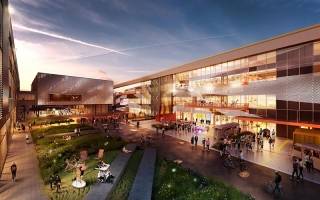UCL IEDE staff to speak at the CIBSE Technical Symposium 2018
10 April 2018
UCL IEDE staff to contribute to CIBSE Technical Symposium held at London South Bank University.

On 12 and 13 April CIBSE, is hosting its annual Technical Symposium at London South Bank University. The theme of this year’s event is ‘stretching the envelope’ – it aims to give the industry an insight into the technical methods that will further the progress of sustainable environments.
Researchers, students and academics from across UCL will participate at the symposium and UCL IEDE is pleased that its staff will contribute to discussions on their areas of expertise.
Professor Dejan Mumovic, Director of UCL IEDE, will chair a session discussing the ‘total life cycle building assessment’. In this session, Dr Sung-Min Hong, Lecturer at UCL IEDE, and Dr Esfand Burman, Lecturer in Complex Built Environment Systems, will deliver presentations alongside Robert Tozer from Operational Intelligence Limited.
Sung-Min Hong’s presentation will discuss ‘analysing trends of energy use of offices and schools using display energy certificates”.
In the recent decade, growing evidence suggested existing benchmarks do not represent the latest patterns of energy use. Sung-Min’s study aims to develop an understanding of opportunities and challenges for providing relevant and reliable benchmarks for non-domestic buildings. Display Energy Certificates lodged between 2010 and 2016 were analysed. ‘General Office’ and ‘Schools and Seasonal Public Buildings’ were selected. The latest energy performance and trends over the past seven-year period were analysed.
Key findings suggest that patterns of energy use continued to change and that CIBSE Guide F and TM46 energy benchmarks do not represent the latest energy performance. Findings from the study supports developing a dynamic and contextualised digital benchmarking platform for providing benchmarks that are up-to-date, relevant and robust.
Esfand Burman will present on ‘total energy and environmental performance of low carbon buildings: a cross-sectoral study’.
Esfand’s paper reports on the key findings of performance evaluations of eight new-build and newly refurbished buildings in four sectors: offices, schools, hospitals, and apartment blocks. Energy performances of these buildings are compared against the available design estimations and good practice benchmarks.
Thermal comfort and indoor air quality in these buildings have also been analysed to provide a holistic view of total energy and environmental performance. The performance of the building with the least energy use suggests that a performance contract can be effective if it addresses both energy and Indoor Environmental Quality (IEQ).
Other improvement opportunities identified include optimisation of ventilation control, performance measurement and verification of low carbon systems, and provisions for inspection and maintenance of advanced mechanical ventilation systems in low-energy dwellings.
Dr George Papachristos, Research Associate at UCL IEDE, will deliver a poster presentation on ‘a multi-method approach to low carbon building performance: coupling project management to building performance in a UK public building case study’.
The ‘performance gap’ in the UK building industry is a persistent problem as new building development projects underperform more often than not. It has to be addressed, as the building sector is responsible for a large share of CO2 emissions in the UK. The ‘performance gap’ arises in part, because building project development involves operations with several stages and actors of different motivations.
The outcome of the building project in terms of quality is important and has implications for energy consumption, carbon emissions and occupant well-being. Current project management models usually focus on quality, cost and time.
We develop a system dynamics model of building project development operations to explore building quality implications for energy consumption and Indoor Environmental Quality (IEQ). To do this, we couple the system dynamics model to a building physics model and illustrate their use in a building project.
Both models are calibrated for a specific building case for which available project process data exists. The building performance model is developed and calibrated to reproduce the actual energy performance of the building based on one year of monitoring and post commission data. This is used as a reference point for the system dynamics model that explores additional scenarios of how project operations could deliver better total building performance.
More information about the symposium is available on the CIBSE website.
 Close
Close


